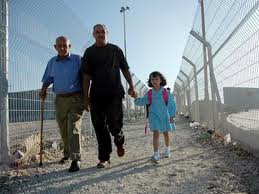
Much deficit deal analysis has focused on why it could lead to big defense cuts — anywhere from $350 billion to $1 trillion over the next decade. Hawkish members of Congress and Pentagon officials, including new Defense Secretary Leon Panetta, are warning about the dangers of a hollow military force. Contractors, meanwhile, are already lobbying heavily to protect their programs.
Yet the Senate Appropriations Committee last week unveiled its spending caps for fiscal year 2013 — without a big defense cut. The appropriators proposed nonwar defense spending (“base” spending) just $2.9 billion below 2011. That cut, less than 1 percent, comes entirely from the military construction and family housing budget — not exactly the pointy end of the spear.
The House is unlikely to cut more, making a larger defense cut this year virtually impossible.
In fact, the deficit deal is unlikely to deliver bigger reductions in defense spending in coming years either. Here’s why.
Compared with 2011 spending, the deal requires only a minor trim in security budgets: $4.5 billion in 2012 and $2.5 billion in 2013. And that reduction — pocket change in a $529 billion annual defense budget — need not even come from the Pentagon.
The legislation defines “security” spending as Defense, Homeland Security, Veterans, State and the National Nuclear Security Administration, a part of the Energy Department.
To get under the 2012 cap, Senate appropriators took $3.5 billion from State and around a half-billion from Homeland Security. Veterans and NNSA got small increases. Defense dodged the bullet — save for that military construction trim.
Second, the widely reported claim that the security cap would cut $350 billion from defense over 10 years is likely a White House claim. The Office of Management and Budget asserts that the Budget Control Act puts us “on track” for those savings. It is comparing what we are due to spend under the BCA not to what we spend now, but rather to the Congressional Budget Office’s most recent projection of spending growth.
Then, even though the security cap expires after two years, they pretend that defense spending will stay at that level plus inflation.
But after 2013, the law caps only total discretionary spending — meaning all programs other than entitlements. Nothing in the BCA then compels the president and Congress to hold down defense spending rather than save elsewhere. After the 2012 elections — the leaders who cut those deals might not be those that agreed to the BCA last month.
The deficit deal guarantees larger defense cuts only if its spawn, the congressional supercommittee, fails to cut debt by $1.2 trillion — either because it cannot reach an agreement or because Congress won’t pass its recommendations on an up or down vote. That would trigger “sequestration,” what Panetta now calls the “doomsday mechanism.” This would require automatic Pentagon budget cuts of more than $500 billion over 10 years. But there are several reasons why the doomsday scenario is unlikely.
For starters, the supercommittee might recommend taxes and nondefense cuts that lower debt enough to avoid sequestration, sparing defense. That is the White House’s preference.
The committee also might save some portion of the $1.2 trillion, limiting the amount sequestered from the Pentagon. Or, if the committee finds itself short, it might claim savings from ending the Iraq and Afghanistan wars — counting as savings money that was never going to be spent anyway.
Even if the committee stalemates, the president and Congress still might avoid sequestration by rewriting the law with higher budget caps. By January 2013, the first time sequestration can occur, deficit worries may have mellowed. Congress dodged sequestration in the late 1980s this way.
The wars offer another escape. Because the bill doesn’t cap war spending, Congress may evade caps by shifting base spending to that account. The past decade has given appropriators ample experience in loading war bills with base spending. Already, Senate appropriators seem to have slipped more than $6 billion of expenses previously in the base budget into the 2012 war request.
Still, let’s say the Pentagon’s worst fears materialize: Defense absorbs all the cuts required by the security caps, full sequestration occurs and wars are not used as a loophole. Even then, Pentagon spending would then drop by only about 15 percent — far less than drawdowns after World War II, the Korean War, Vietnam and the Cold War. The “doomsday” scenario would only return America to its 2007-level of defense spending.
The wisdom of large defense cuts is an important argument for Americans to have. But we cannot properly debate decisions that we pretend already to have made.
Benjamin Friedman is a research fellow in defense and homeland security studies at the Cato Institute. Caitlin Talmadge is an assistant professor of political science and international affairs at The George Washington University.








![[Murdoc43-parents2.jpg]](https://blogger.googleusercontent.com/img/b/R29vZ2xl/AVvXsEg3YKJoEWQghIh3t_WYXRs2zP8fqABpOZI6a_iNT7KE5krALNYWzMoTfZrnpPPBgDRAv_riLX_riV8DSeM_JMePvJRB4kf0Od66DVmymcbHjEiH5YmlI2PgYmv6QVdOHtu6kerElE9RyDJ6/s1600/Murdoc43-parents2.jpg)
![[Murdoc-father.jpg]](https://blogger.googleusercontent.com/img/b/R29vZ2xl/AVvXsEhBWxvZNDvTpr-PAS92Fbs59IxpjuHP2ofCKRDiwPwWSXcWNdmzWNCzndj2BLsim-ZLjtlJgVxIG_ZN6eaiFeQigkJzg2vHWTHO2mI0bMNAo55-kk5PBUCyjRD563zcvw-ZqaJZ0XpcKVMW/s1600/Murdoc-father.jpg)

